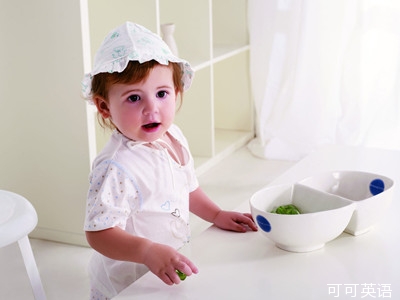(单词翻译:单击)
Next time a three-year-old tells you what to do you might want to listen. Because three-year-olds can recognize when we adults are doing something counterproductive and are keen to help us find a better way. That's according to new research in the journal Developmental Psychology.
下次一位三岁的孩子告诉你做什么,也许你该好好听听。因为当成人们在做无用功时,三岁的孩子能认识到这一点,并急切地想要帮助我们找到更好的方法。刊登在《发展心理学》杂志上的一项新的研究如此认为。

Scientists had 58 three-year-olds examine several functional and nonfunctional objects. Like a real phone and a toy phone, or a working marker and a dried-up marker.
科学家让58名三岁的孩子检查一组物体,其中一个功能完好,另一个则不然。比如一部真正的电话和一个玩具电话,或者一支有用的记号笔和一支没用的记号笔。
Then the researcher would say something like, "I need to make a phone call, can you get me the phone." Sometimes they'd point to the real phone and other times point to the toy phone. The children would consistently bring over the functional item, regardless of whether the researcher pointed to it or asked specifically for it. In contrast, when they were told the item would just be thrown out, they'd bring either the nonfunctional or functional object. And in the case when any object would do, such as something that could act as a paperweight, the children brought either the fake one or the real one.
然后研究人员会这样对他们说:“我需要打电话,你能把电话拿给我吗。”有时候他们会指着真正的电话,有时候会指着玩具电话。结果不论研究人员是否指着它或专门要它,孩子们总是会把有用的东西拿过来。相反,如果告诉他们要把东西扔出去,他们要么拿过来没用的东西,要么拿过来有用的东西。而且,在任一物体都能起作用的时候,例如能充当书镇的物体,孩子们会二者择一。
Ultimately the children focused on the end goal and deliberately choose the best item, as opposed to what was instructed of them. A good reminder for us adults.
基本上,孩子们会关注最终目标,并有意挑选最适合的物体,即使有时会违背大人们的指示。这是对大人们最好的提醒。
原文译文属可可原创,未经允许请勿转载!


